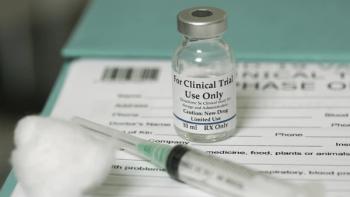
AAOphth’s IRIS database now used by one third of ECPs
The American Academy of Ophthalmology says that close to one-third of the nation's eye physicians and surgeons are participating in the Intelligent Research In Sight (IRIS) Registry, which is the first comprehensive database of eye diseases and conditions in the United States.
San Francisco-The
The IRIS Registry is a centralized data repository and reporting tool that aggregates patient data from electronic health records (EHRs) to perform statistical analysis. It provides information that enables ophthalmologists to improve patient care, potentially reduce cost and enhance the speed of some large clinical trials, assist in monitoring resource utilization and comply with federal incentive programs. In less than a year, more than 5,000 ophthalmologists across the country use the IRIS Registry, with data related to more than 10 million patient visits.
The ophthalmology database provides the ability for clinical benchmarking at the practice, regional and national levels, enabling physicians to monitor patient care, track interventions and evaluate outcomes across different populations. It features subspecialty modules that can help analyze how different pre-existing conditions, risk factors, severity of disease and demographics affect outcomes for age-related macular degeneration, cataract surgery, diabetic retinopathy and retinal surgery.
Though the IRIS Registry is still in its infancy, it is already generating aggregate data that hint at the insights that will be available as more information enters the system. The following has been revealed about patients seen by ophthalmologists participating in the IRIS Registry thus far:
• Two percent of patients without comorbidities require an additional procedure for complications within 30 days after cataract surgery (not including YAG laser)
• Eighty percent of patients without comorbidities have a vision of 20/30 or better within 90 days after cataract surgery
• Ten percent of patients have age-related macular degeneration
• Forty-six percent of patients with age-related macular degeneration receive counseling about antioxidants when seen by an ophthalmologist
• Eleven percent of all patients have primary open-angle glaucoma
• Six percent of all patients in the IRIS Registry have diabetic retinopathy.
At this time, the IRIS Registry is available exclusively to all U.S.-based American Academy of Ophthalmology members and their practices at no cost.
Newsletter
Want more insights like this? Subscribe to Optometry Times and get clinical pearls and practice tips delivered straight to your inbox.













































.png)


